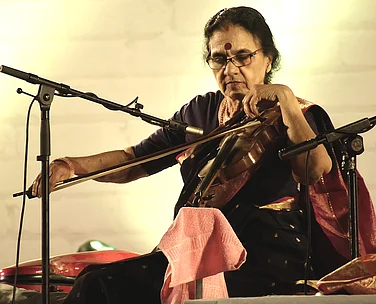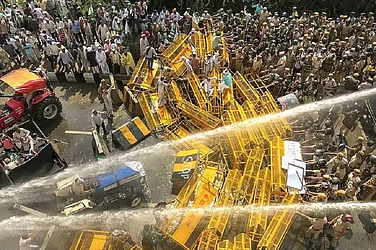Add to it the vast border, a highly pliable Indian security system (which some allege is compromised), well organised groups of human traffickers who work in conjunction with Indian racketeers with political patronage. At a seminar in March this year, noted northeast analyst Sanjoy Hazarika focused on this: "If even now we believe that migration can be stopped by laws, police force and agitations, then we live in an unreal world." Migration, he says, needs to be viewed in the larger context of economic development, pressure on land and the desperate human urge to survive.
Officials in Delhi, however, say their real concern is the changing demography of India's border districts in West Bengal, Bihar, Assam, Tripura, and even states like Nagaland where unchecked migration over the years is having its impact. The home ministry document studying decadal increase of population notes: "The Hindu population in West Bengal has come down from 61 per cent to 54 per cent in 1991 and the belt bordering Bangladesh has become Muslim predominant. The Muslim population in Assam has gone up from 3.6 million in 1971 to 6.4 million in 1991. The tribal population in Tripura has come down to 26 per cent. The influx of these illegal immigrants is slowly turning the bordering districts of these states into Muslim-majority areas." According to home ministry estimates, as many as 40 out of the 126 assembly constituencies in Assam are assessed to be dominated by Bangla nationals.
Says Hazarika: "It is indisputably a fact that a majority of those moving into the northeast and other parts of India from Bangladesh are Muslims... A fundamentalist Islamic front in the soft underbelly of eastern India, where governance is poor and infrastructure close to collapse, has the potential of creating havoc." So what is the way out? According to him, the need of the hour is to look for constitutional safeguards for local populations and a system of identity cards.
The situation appears tailormade for communalists on both sides of the divide. Already, there is talk here of isi involvement in pushing in their own men under the guise of poor illegal migrants. The killings last fortnight at the border will only give rein to such thinking. Ministry sources say that home minister L.K. Advani is actively considering the setting up of a judicial commission to examine the nexus between government officials and militants and the system of issuing work permits to migrant labourers from Bangladesh. The only problem now is that with renewed hostilities on the Indo-Bangla borders, that is one programme which may not take off at all.


























